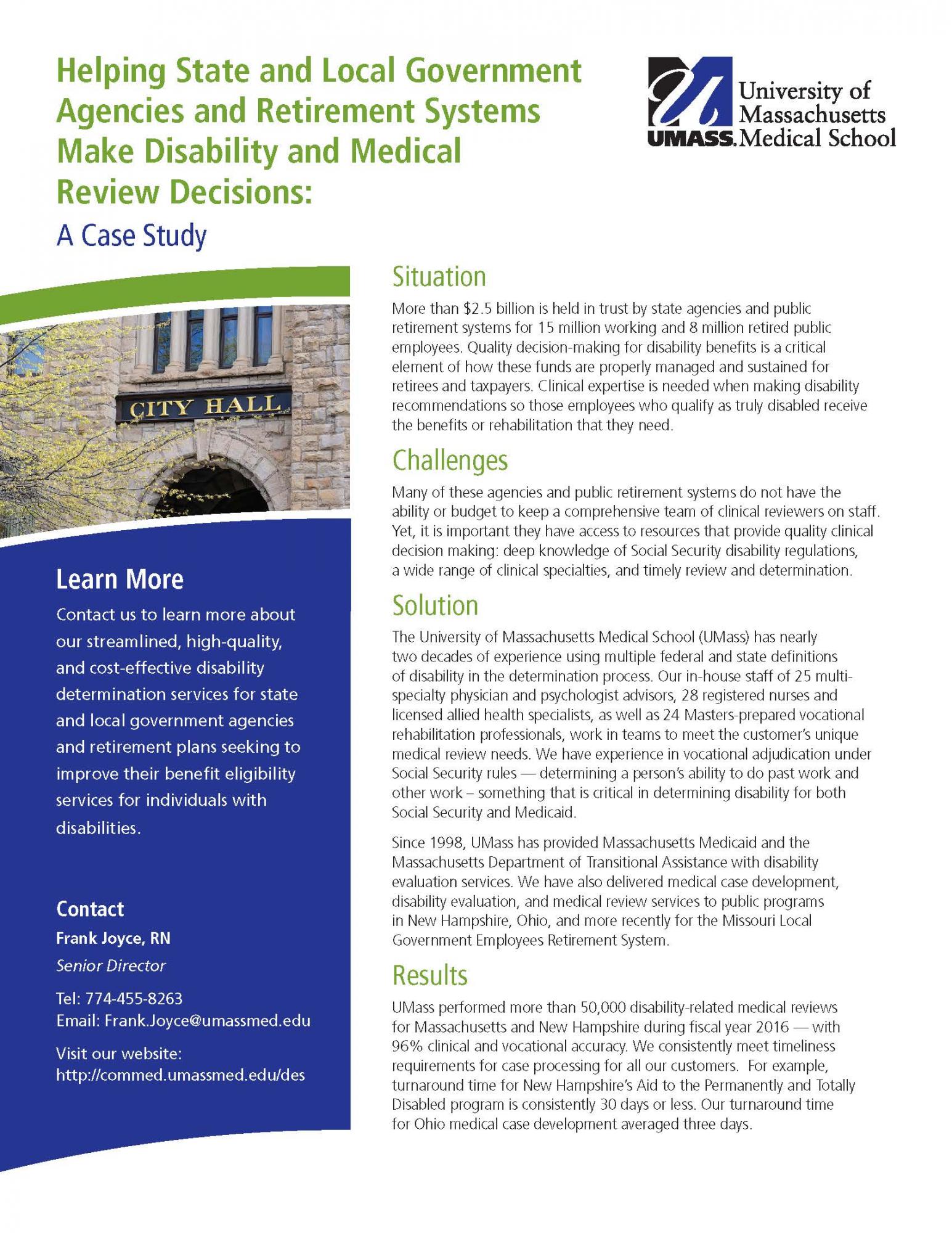Situation
More than $2.5 billion is held in trust by state agencies and public retirement systems for 15 million working and 8 million retired public employees. Quality decision-making for disability benefits is a critical element of how these funds are properly managed and sustained for retirees and taxpayers. Clinical expertise is needed when making disability recommendations so those employees who qualify as truly disabled receive the benefits or rehabilitation that they need.
Challenges
Many of these agencies and public retirement systems do not have the ability or budget to keep a comprehensive team of clinical reviewers on staff. Yet, it is important they have access to resources that provide quality clinical decision making: deep knowledge of Social Security disability regulations, a wide range of clinical specialties, and timely review and determination.
Solution
The University of Massachusetts Medical School (UMass) has nearly two decades of experience using multiple federal and state definitions of disability in the determination process. Our in-house staff of over 25 multi-specialty physician and psychologist advisors, plus more than 50 additional clinicians, including registered nurses, licensed allied health specialists, and Masters-prepared vocational rehabilitation professionals, work in teams to meet the customer’s unique medical review needs. We have experience in vocational adjudication under Social Security rules — determining a person’s ability to do past work and other work – something that is critical in determining disability for both Social Security and Medicaid.
Since 1998, UMass has provided Massachusetts Medicaid and the Massachusetts Department of Transitional Assistance with disability evaluation services. We have also delivered medical case development, disability evaluation, and medical review services to public programs in New Hampshire, Ohio, and more recently for the Missouri Local Government Employees Retirement System.
Results
UMass performed more than 50,000 disability-related medical reviews for Massachusetts and New Hampshire during fiscal year 2016 — with 96% clinical and vocational accuracy. We consistently meet timeliness requirements for case processing for all our customers. For example, turnaround time for New Hampshire’s Aid to the Permanently and Totally Disabled program is consistently 30 days or less. Our turnaround time for Ohio medical case development averaged three days.


